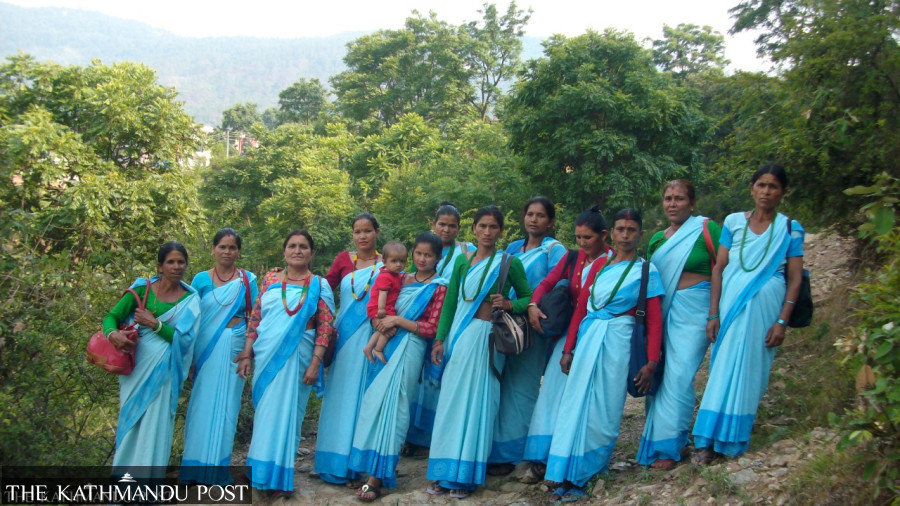National
Nepal’s FCHVs win WHO’s Public Health Champion Award
Recognised as a low-cost, high-impact model, FCHV programme typifies sustainable, gender-equitable, community-led healthcare system.
Post Report
The Female Community Health Volunteers (FCHVs) of Nepal have won the newly instituted WHO South-East Asia Region’s Award for Public Health Champion.
According to a statement issued on Tuesday by the WHO South-East Asia Region, the FCHVs have been recognised for their transformative role in improving maternal and child health, increasing immunisation coverage, promoting nutrition, and managing disease outbreaks, even in Nepal’s most geographically and socially challenged regions.
Their efforts have significantly contributed to reducing maternal mortality from 901 per 100,000 live births in 1990 to 151 in 2021, and under-five mortality from 162 to 28 per 1,000 live births (NDHS 2022, UNICEF). Internationally recognised as a low-cost, high-impact model, the FCHV programme is a replicable example of sustainable, gender-equitable, and community-led health systems strengthening.
Along with Nepal’s FCHVs, disability inclusion champion of India Dr Satendra Singh, and the Lepra Society of India, also won the Award.
Dr Singh, director-professor of Physiology at the University College of Medical Sciences and GTB Hospital, Delhi, has been selected for the award in the individual category for championing disability inclusion in health systems and medical education, the statement said.
Drawing from his own lived experience with disability, Dr Singh has spearheaded transformative advocacy that reframed disability from a medical limitation to a human rights issue, influencing policies, curricula, and institutional practices in India and across the world. Dr Singh’s work exemplifies sustainable, inclusive public health innovation rooted in equity and empowerment.
The LEPRA Society, an NGO operating since 1989, has been selected as a Public Health Champion in the institution category. It has played a key role in medical breakthroughs in leprosy such as use of innovative technologies for creation of custom-made footwear to prevent ulcers.
The LEPRA Society operates across nine states and 143 districts in India, providing services through 146 healthcare centers in underserved and hard-to-reach areas. It has expanded its work to address other health challenges like tuberculosis, HIV, lymphatic filariasis, and also COVID-19 during the pandemic. The LEPRA Society remains a person-centered healthcare provider that integrates innovation, research, and compassion to serve marginalized communities and improve public health.
WHO South-East Asia Regional Office announced the Award for Public Health Champion in June this year, to honour extraordinary efforts of individuals and institutions whose contributions have created a lasting impact in public health and resulted in tangible health gains for Member States or for the Region as a whole. Fifty nominations were received for the award from Bangladesh, India, Nepal, and Thailand.
The Champions will be felicitated at an event on the sidelines of the 78th session of the WHO South-East Asia Regional Committee meeting in Colombo, Sri Lanka, according to the statement.




 19.12°C Kathmandu
19.12°C Kathmandu













